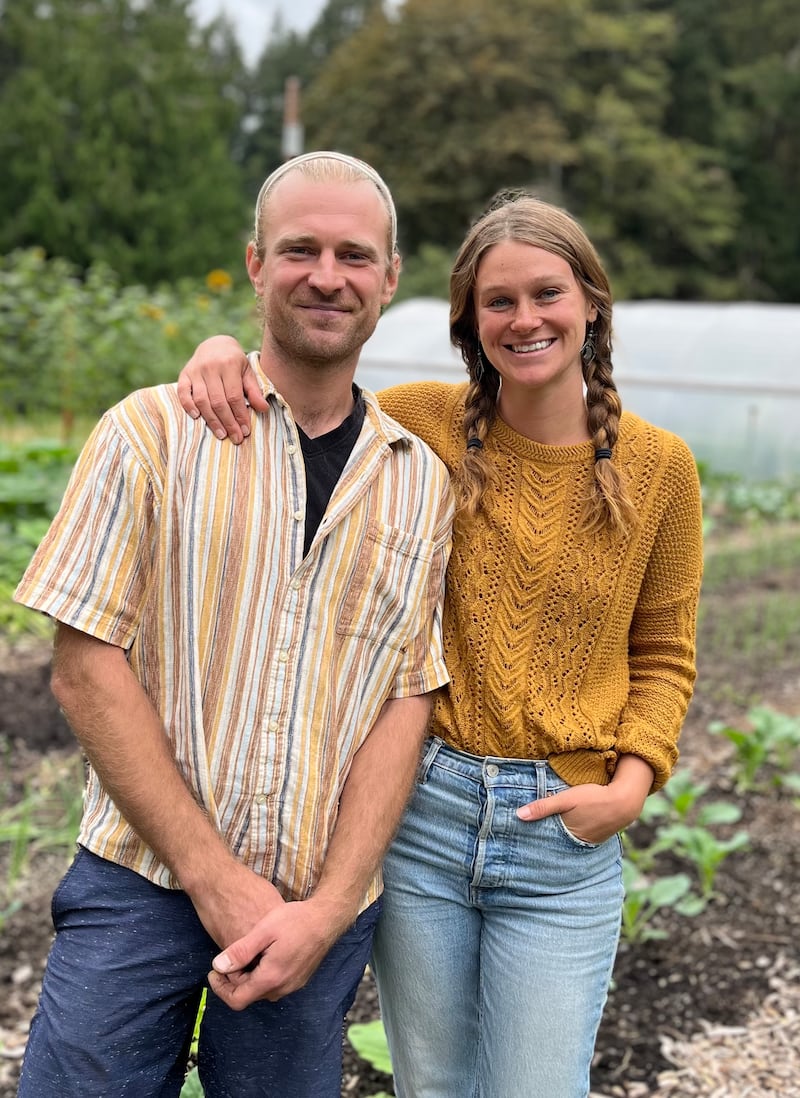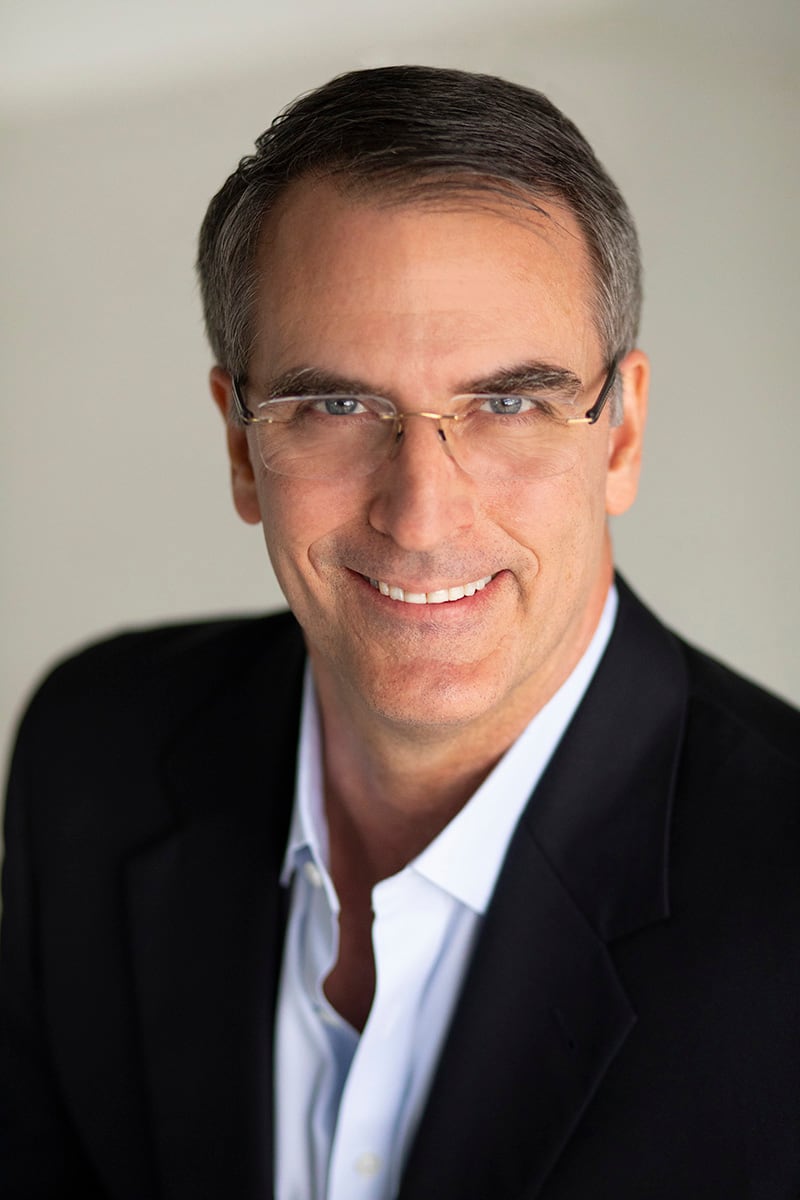At the Quincy Grange Hall near Clatskanie last week, 75 farmers and residents of the lowlands along the Columbia River debated the future of a clean-fuels project that could slash carbon emissions by 7 million metric tons a year.
That’s the equivalent of taking a million cars off Oregon roads.
If the proposed refinery sold all of its green output in Oregon alone, the benefit would exceed the state’s goal of sequestering 5 million tons of CO2 a year by 2030.
The seemingly magical plant, 63 miles northwest of Portland and proposed by a startup called Next Renewable Fuels, is designed to produce “renewable diesel,” a clean-burning alternative to petroleum that can be made from discarded vegetable oil, wood waste and animal carcasses. It’s like biodiesel but refined differently, so it can be pumped into an 18-wheeler with no modifications. Using it cuts carbon emissions by 60%, and it doesn’t produce as much soot.
Even better, Next says it plans to make much of its renewable diesel from fish carcasses, which abound here and in Asia. After taking everything that can be used for fillets, cat food, fish oil pills and fertilizer, the rest of a salmon, say, is rendered into a paste that is discarded. That “fish Crisco” is full of the long-chain fats that make great raw material for renewable diesel, says Chris Efird, a charismatic Texan who co-founded Next in 2016.
“It’s very, very high in lipid content, so it’s great feedstock,” Efird, 58, says.
Keith Wilson, owner of Portland trucking company Titan Freight Systems, is a big fan. He runs his 47 trucks on renewable diesel about half the time. It burns cleaner, reducing his maintenance costs. The only problem, Wilson says, is getting enough of it. He currently gets his supply from a Finnish company called Neste that delivers it from a refinery in Singapore.
The market is heating up because Oregon and California offer valuable credits for renewable diesel that can be sold for cash to big polluters, and Washington is set to follow suit next year. Next would find eager customers.
“Should they succeed,” Wilson says, “it would be a tailwind for Oregon.”
Next has a valuable Oregon ally: gubernatorial candidate Betsy Johnson, whose old legislative district includes Port Westward, the site near Clatskanie where Next wants to put its plant.
“There is no question that the Next Renewable Fuels development in Clatskanie is a good idea,” Johnson says. “Renewable diesel is good for the environment and good for jobs.”
The Next plant would produce 50,000 barrels a day (enough to fill more than three Olympic-sized swimming pools), making it the biggest U.S. producer of a precious commodity. Oregon would become the Kuwait of renewable diesel. And it would happen in a place that needs an economic lift: Clatskanie, Ore., halfway between Portland and Astoria on Highway 30. Once a thriving timber town, Clatskanie shriveled when that industry contracted.
Columbia County leaders have looked to Port Westward for a revival. One of just five deep-water ports in Oregon, it has both rail and ship access, and a dock that’s ready made for importing feedstock and exporting diesel.
But the underused port has struggled to attract tenants for decades. In 2009, it became notorious for a spectacular corporate collapse. An ethanol plant run by Cascade Grain operated for seven months before going bankrupt (“Corndoggle,” WW, April 8, 2009).
Efird says he will succeed where others have failed and that his $2.5 billion plant will shower $700 million in wages on the 3,500 construction workers needed to build it. Once it’s operating, the plant will employ 240 people at $90,000 a year each, and it will generate $45 million in property tax revenue—without any subsidies.
“We are taking no tax breaks,” Efird told Columbia County commissioners in January. “We are taking no incentives. We want to position Columbia County as a key node in the transition to a post-carbon future.”
Next hopes to complete permitting next year and start refining in 2025. The company cleared a major hurdle last month when the Oregon Department of Environmental Quality granted the project an air quality permit. Efird says big players are lining up to do business with Next. BP will supply raw materials, Efird says, and Shell plans to buy his output. And, he says, Wall Street giant Goldman Sachs has signed on as Next’s banker. (Goldman declined to comment.)
Next’s potential is tantalizing: With a few more permits, the company could turn fish guts into green gold, helping Oregon achieve its lofty climate goals and breathing life into a struggling backwater. But locals have heard a series of pitches from out-of-state developers of coal depots, liquefied natural gas terminals and chemical plants. Interviews with farmers and environmental groups, and an examination of voluminous public records detailing Efird’s history suggest Next may be another in the long line of fast-buck artists seeking to exploit Oregon’s natural resources.
“They’re a bunch of carpetbaggers,” says Mike Seely, a third-generation farmer who grows heirloom Black Mitcham peppermint that flavors Burgerville shakes and Salt & Straw ice cream. “I’m not opposed to industry. I’m opposed to bad players.”
The best argument for the Next plant is climate change. Despite aggressive goals for carbon reduction, Oregonians have made little progress. Nonetheless, leading environmentalist groups oppose Next.
Dan Serres, conservation director at Columbia Riverkeeper, has dug deeply into Efird’s plan. Serres says his organization has no problem with renewable diesel. He just doesn’t think Port Westward is the place for it.
Mary Kyle McCurdy, deputy director at 1000 Friends of Oregon, agrees. “Location matters,” McCurdy says. “We don’t need to pit climate change against farmland. We believe there are alternative sites. This land doesn’t have to be put at risk.”
Among Next’s most voluble critics is Jasmine Lillich, 29, a fifth-generation farmer from Clatskanie, and her fiancé, Brandon Schilling, 33. They speak for a group of farmers who worry how the plant might harm their land.
Port Westward lies amid 5,717 acres of farmland that’s protected from the Columbia River by levees and pumps that date from 1915. Much of that land is below river level. When there’s heavy rain, the Beaver Drainage Improvement Company, the nonprofit that manages the diked land, switches on electric pumps to drain the deluge.
The diked lands are hyperrich—formed from thousands of years of organic deposits from the Columbia River—and well irrigated. Lillich says it’s madness to turn 118 acres of prime farmland into a refinery complex.
“You can’t get these soils back,” Lillich says. “They took 150,000 years to create.”
According to a state formula, Next must restore almost 4 acres to wetlands for every 1 acre it covers. The company plans to do that by stripping the top 6 inches of soil off 483 acres in the Beaver drainage to keep native plants wet year round, and dig ponds and channels up to 6 feet deep. Farmers like Seely say the excavation will reveal artisan springs and “sand boils” that will flood their land.
“The water is going to seep into the drainage, and we’re going to have to pump it out,” he says.
Efird says the farmers have it all wrong. The wetlands will act as a vast sponge for winter rains, he says, one that can be wrung out in summer for irrigation.
Lillich and Seely also fret about what will happen in an earthquake to the 1 million gallons of renewable diesel that Next plans to store on the site. Silty soils like the ones in the Beaver drainage liquefy in quakes. Efird dismisses that concern, saying the plant will be engineered for safety, with thousands of piles driven 50 feet into the earth.

There’s also the question of whether Next can deliver a highly complex, multibillion-dollar project. So far, precious little renewable diesel has been made from fish waste, according to Cerulogy, a clean-fuels consultancy. In 2020, fish waste accounted for just 10 million of the 600 million gallons burned in the U.S. Next says it will produce 750 million gallons of renewable diesel a year, more than all U.S. consumption in 2020. It plans to make a lot of it from fish paste.
That’s a big job for anyone, and Efird, who spent much of his career selling penny stocks, has been involved in at least two other fuel projects that failed.
The first one, TransMessis Columbia Plateau LLC in Odessa, Wash., 75 miles west of Spokane, opened in November 2013. Efird, an investor, was on the board. TransMessis crushed grain from local farmers and turned the oil into biodiesel. It operated for just eight months, then shut down in June 2014 because, Efird says, “the equipment wasn’t working right.”
Nine months later, documents show, the Washington Department of Ecology inspected the abandoned plant and found corroded containers leaking sulfuric acid and other chemicals. The U.S. Environmental Protection Agency spent $400,000 to clean up the mess.
“The presence of large quantities of various process chemicals, hazardous materials and waste that had been abandoned at the site presented a threat of release to the air, and fire/explosion,” the EPA wrote in May 2015.
TransMessis left farmers in the lurch, too. One company, Wolfkill Feed & Fertilizer Corp., sued TransMessis, saying it had lied about its creditworthiness and that the firm owed Wolfkill $1.7 million. Efird says he paid back taxes, settled with Wolfkill, and paid employees money they were owed since the sudden shutdown.
“I had to write a very large check,” Efird says.
As for the toxic mess, Efird says many of the toxic chemicals were left by a previous operator, and the containers corroded after TransMessis left the facility.
In August 2014, two months after TransMessis failed, Efird formed a company called Waterside Energy Development LLC. Efird became chairman and managing director. Through a subsidiary, Riverside Refining LLC, documents show, Waterside proposed to build a refinery at the Port of Longview, Wash., to handle 30,000 barrels a day of crude from North Dakota. Riverside promised 400 construction jobs and 150 permanent jobs.
The deal never happened. Waterside missed the deadline to provide financial information, and the data it did submit was “heavily redacted and failed to communicate financial support of the project,” the port said in a statement on Feb. 23, 2016.
Efird moved on and formed Next that same year. Lou Soumas, Efird’s partner in TransMessis and Waterside, became the public face of Next, attending town halls and meeting with locals. But, in late 2020, Soumas, now 63, was arrested in Texas on two felony charges: indecency with a child by exposure and indecency with a child by sexual contact. Soumas didn’t return a phone call seeking comment.
Efird says Next fired Soumas immediately.
“It was a very, very unfortunate situation,” Efird says.
Behind his Texas accent, Efird has the gentle, earnest manner of an accountant. He wears rimless eyeglasses and a monogrammed shirt. He talks in humbled tones about how hard it is to build a refinery in Oregon, where the environmental rules are strict.
“People said, ‘Chris, what are you doing?’ Oregon is where energy projects go to die,” Efird says. “I’m not looking for a medal, but this is tough sledding.”

Efird got his start in business in 1993 at a Houston firm called Benchmark Equity Group.
He left in 2000 and went on to start a series of investment firms (see “A Busy Man,” page 16). Much of his business was setting up penny-stock shell companies that could be listed on stock exchanges without the more rigorous process of an initial public offering. Filings with the U.S. Securities and Exchange Commission show Efird has been involved in no fewer than 20 different companies, investment funds, and LLCs.
Despite his spotty track record, Efird can still raise money. One of Efird’s biggest backers at Next is Robert Russell, 73, a San Diego investor who specializes in commercial real estate. Russell’s website says he has been in business for 45 years and has developed properties worth more than $900 million.
Russell says he met Efird in Houston. They share a passion for Scouting. Russell says he served on the board of the Boy Scouts of America, and Efird still volunteers as an assistant scoutmaster.
Russell invested in Waterside Energy. He also helped Next by buying 860 acres near Port Westward through a company called Oregon Port AG Investors LLC for $1.7 million, according to property records. Next plans to turn part of Russell’s acreage into new wetlands to offset the land it grades and fills for the plant.
“My role was money more than anything else,” Russell tells WW.
Earlier this year, Russell considered running for a seat on the Beaver Drainage board, raising concern about a takeover by Next, local farmers said. He made a strong impression on board members when he met with them at Farmhouse Coffee in Clatskanie and bragged about his days at Goldman Sachs, where, he said, he was known as “El Diablo because I would do anything to make a buck, including gouging a person’s eyes out and pissing in their dead eye sockets,” recounts a person familiar with the meeting who declined to be named because he fears retribution from Next.
Russell says he never made the comments.

Efird says Next isn’t taking any state money to build its plant, unlike the failed Cascade Grain, which got tens of millions in subsidies.
For him, the secret sauce is green energy credits. In Oregon, producers of low-carbon-intensity fuels—like renewable diesel—earn credits that they can sell for real money to producers of dirty fuels—like petroleum diesel—who need the credits to comply with state restrictions on carbon emissions. The system offers more credits for fuels made from nonpetroleum waste products. If Next uses more fish grease than virgin soybean oil, it will make more money.
Efird admits the Next project was risky at first. Risk increased when Soumas, the former president, got arrested. Now that Soumas is gone, and Next has the air quality permit from DEQ, things are looking good. “It would have been very easy to give up,” Efird says.
Next must still pass a review by the U.S. Army Corps of Engineers and obtain a state water quality permit that he’s been denied twice. He also has to pacify locals at the Quincy Grange.
Last week, farmers met there to consider a proposal by Next to pay $3.5 million to the Beaver Drainage Improvement Company over 10 years to stop opposing Next’s diesel plant. The three-member board could have voted to accept the deal, but people in the drainage district protested, saying the issue should go to a vote of all the landowners.
One of them, a contractor named Craig Worsham, says he knows how he will vote.
“A company like Next is a small coven of millionaires sitting on their cellphones at the golf course trying to make another million dollars,” Worsham said at the grange meeting. “And this little drainage district is a thorn in their side. The best thing that they can do to move on with their next million is to get us the fuck out of the way.”
The crowd cheered. The three board members dismissed the audience, deliberated for 20 minutes, then announced they had put off a decision on the Next offer until Oct. 12.

A Busy Man
Chris Efird, founder of Next Renewable Fuels, has a long résumé. His LinkedIn profile lists seven positions since 1993, and filings with the Securities and Exchange Commission show he’s been involved with some two dozen companies, many of them penny stocks that went nowhere.
They had names like Matador Acquisition, Ruby Growth, and Emerald Acquisition. Many were shell companies set up in the Cayman Islands. A shell company has no operations—just a legal structure that lets it sell shares to investors, often for a fraction of a cent each.
The goal of a shell is to merge with a company that actually does something, then get listed on a stock exchange, where other investors can buy the shares, hopefully at higher prices.
Shell companies are perfectly legal, but they have at times been used in pump-and-dump schemes in which promoters buy up shares in a shell, claim it has a new product, or talented new management, to drive up the share price, then sell their shares and disappear.
“The vast majority of people are trying to do the right thing,” says Florida securities lawyer Laura Anthony. “There are some bad actors who give the business a bad name.”
One of Efird’s companies was Tiger Growth, a Cayman Islands company formed in March 2006. A month after Tiger’s founding, according to SEC filings, Tiger sold 1 million shares to a company called Nautilus Global Partners for 0.1 cent a share. Efird owned a 40% stake in Nautilus. A month later, Tiger sold 177,500 shares to investors at 20 cents a share—a significant premium, making Nautilus’ shares worth lots more than what it paid.
In February 2008, Tiger bought a Greek construction company called Aegean Earth SA that had four employees and owned no property. Even so, in April 2008, Aegean said it planned to sell 1.4 million shares at $3 a share to private investors—shares that insiders like Efird had acquired for a fraction of a cent.
A month after the notice of the share sale, Aegean told the SEC that it couldn’t file a quarterly report on time. By September 2010, the company—now called Hellenic Solutions Corp.—had just $172,189 in cash on hand and loans and other liabilities of $42.3 million. In 2013, the SEC ruled that Hellenic could not sell shares to the public because it hadn’t filed financial reports on time for several years.
Efird admits to WW the shells were risky business.
“You have to be very candid with your investors,” he says. “You have to say, hey, listen, this has the possibility of being great and it has the possibility of being a train wreck.”
